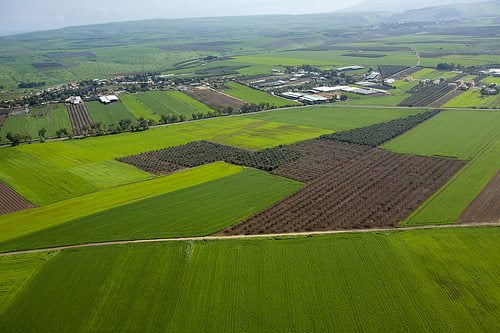

Environment
Nature Improvement Areas: Thousands more hectares for our wildlife
Nearly 20,000 hectares of natural habitat – the equivalent of almost 23,000 football pitches – has been created, restored or preserved across England over the past three years thanks to an innovative £7.5 million government project.
Published today, the ‘Monitoring and Evaluation of Nature Improvement Areas: Final Report’ showcases the achievements of the 12 Nature Improvement Areas – established in 2012 with funding from Defra – in helping protect wildlife and connect people with nature, while providing a boost to rural economies.
From the vast green plains of the Humberhead Levels to the glacial landscapes of the Meres and Mosses wetlands and the urban backdrop of the Greater Thames Marshes, the three-year initiative saw local authorities, communities, conservation groups and the private sector come together to change and improve local areas in both rural and urban locations. This unique partnership approach means these natural spaces now not only provide a sanctuary for wildlife to thrive, but also ensure people can enjoy them for generations to come.
Environment Minister Rory Stewart said “Our beautiful natural environment is vitally important to our national identity. By combining government investment with community action these 12 Nature Improvement Areas have delivered real results for local environments and have built a justifiable sense of pride – bringing an astonishing 47,000 days of volunteer time to the natural world.”
We owe a huge thanks to the many many people who made these projects possible. We must now look to make sure these remarkable results are long lasting and help to connect the British public with nature. The work of the Nature Improvement Areas will be central to how we think about the environment over the next twenty-five years.
In total, work across the areas has preserved or enhanced over 13,500 hectares of habitat, such as the 1,700 hectares of woodland and wetland in Morecambe Bay, while an additional 5,000 hectares of habitat has been created, providing much-needed homes for our precious wildlife.
The Nature Improvement Areas have also helped people reconnect with nature, with volunteers contributing over 47,000 days, school children earning their green fingers by planting trees, and communities getting involved in decision making.
Thanks to work carried out through the initiative, the areas could now see a boost to tourism, helping to generate jobs and enhance our valuable rural economy which is worth £210 billion to the UK’s growing prosperity.
Natural England Chairman Andrew Sells said “I warmly congratulate all 12 Nature Improvement Areas on the enormous contribution they have made to conservation in such a short space of time. It is clear that this approach to coordinated landscape scale activity in England has delivered multiple benefits.”
The positive lessons learnt from this initiative serve as shining examples of what can be achieved by an ‘outcomes focused partnership approach’ and I hope that inspires others to follow suit in the future.
Learnings from the Nature Improvement Areas will now help to informDefra’s 25 year plan for action on the environment which will be published later in the year as part of a comprehensive, long-term vision to protect the country’s natural heritage.
Notes to editors
- The full ‘Monitoring and Evaluation of Nature Improvement Areas: Final Report’ is available at randd.defra.gov.uk
- Nature Improvement Areas were established to create joined up and resilient ecological networks at a landscape scale. They are run by partnerships of local authorities, local communities and landowners, the private sector and conservation organisations with funding provided byDefra and Natural England.
- The 12 projects were chosen after a competitive process announced in the Natural Environment White Paper. They are:
- Birmingham and the Black Country
- Dark Peak
- Dearne Valley Green Heart
- Greater Thames Marshes
- Humberhead Levels
- Marlborough Downs
- Meres and Mosses
- Morecambe Bay Limestones and Wetlands
- Nene Valley
- Northern Devon
- South Downs Way Ahead
- Wild Purbeck
- All Natural Improvement Areas have business plans in place that run until at least 2020.
- The Nature Improvement Area partnerships mobilised resources with an equivalent value of £26.2 million, including the financial value of volunteer time and services in-kind, in addition to initial government grant funding. Of this total, £15.3 million was from non-public sources such as private sector and NGO funding.
- For more information on this press release, contact the Defra press office on 020 7238 6140.


 Environment12 months ago
Environment12 months agoAre Polymer Banknotes: an Eco-Friendly Trend or a Groundswell?

 Features11 months ago
Features11 months agoEco-Friendly Cryptocurrencies: Sustainable Investment Choices

 Features12 months ago
Features12 months agoEco-Friendly Crypto Traders Must Find the Right Exchange

 Energy11 months ago
Energy11 months agoThe Growing Role of Solar Panels in Ireland’s Energy Future




























